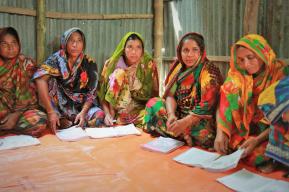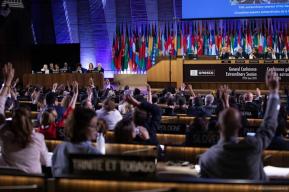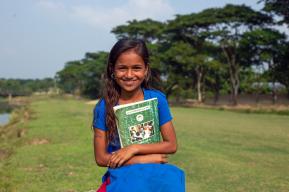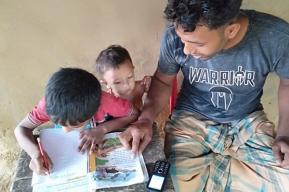Noticia
[Translate to espanol:] Foreign Minister of Bangladesh Outlines Transition Towards Sustainable Development
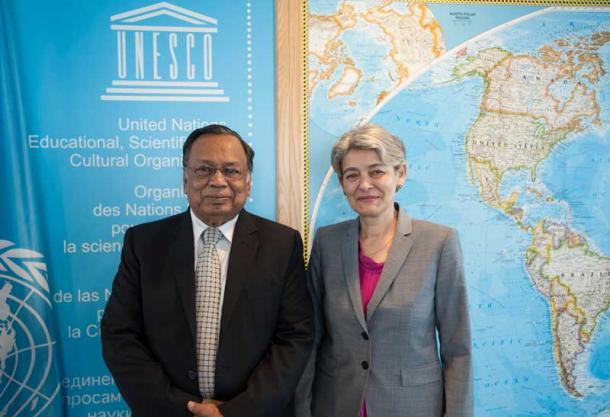
[Translate to espanol:] Improving the quality of education, building the blue economy and transitioning to the sustainable development goals featured among national priorities that the Minister of Foreign Affairs of Bangladesh, Mr Abul Hassan Mahmood Ali, discussed with Director-General, during a meeting at UNESCO Headquarters on 22 June 2015.
[Translate to espanol:] “We are moving in a big way on the path to development,” said the Minister, drawing attention to the priority placed by Prime Minister Sheikh Hasina on women’s empowerment, the achievement of gender parity in primary and secondary education, calling for increased support in the area of teacher training and technical and vocational training to improve the quality of education.
He noted that with maritime boundary issues solved with neighboring countries, Bangladesh was ready to move into building the “blue economy,” and called for cooperation with the Intergovernmental Oceanographic Commission and capacity building on ocean science and disaster risk reduction.
He said also that reinforced sub-regional cooperation between the northeastern states of India, Bhutan and Nepal that is unlocking new development opportunities, including in the area of hydro-power generation.
The Director-General highlighted UNESCO’s leadership in coordinating the Tsunami Early Warning System, its advocacy to include a stand-alone goal on oceans in the post-2015 sustainable development agenda, participation in the interagency International Flood Initiative and work on the follow-up to the Third UN World Conference on Disaster Risk Reduction held in Sendai (Japan) in March 2015. She informed the Minister about UNESCO’s close cooperation with France on the United Nations Climate Change Conference (COP21) in December 2015, during which a side event on the ocean is foreseen.
The Minister drew attention also to the proposal put forward by the Government to establish an International Mother Language Institute as a Category 2 Centre under the auspices of UNESCO, which will be presented to the fall session of the Executive Board for approval. He noted Bangladesh’s efforts to introduce mother tongue teaching for tribal people at the primary level.
The Director- General made reference to joint work with Bangladesh on the Education for All 2015 review, to the annual celebration of International Mother Language Day and to UNESCO’s work to promote mother tongue teaching globally, noting its positive impact on learning achievement and inclusion. She also commended Bangladesh for sharing its experience in the area of education and literacy with others, including the E-9 countries.
In the area of cultural heritage, guidance and expertise on inscribing new sites on the World Heritage List was requested, while reference was made to an upcoming project to complete an inventory of intangible cultural heritage.
In concluding, the Director-General praised UNESCO’s dynamic cooperation with Bangladesh and the country’s achievements across the Millennium Development Goals, which adds up to a “very positive example of development cooperation,” that she hopes the Prime Minister can share with Member States during the General Conference.


